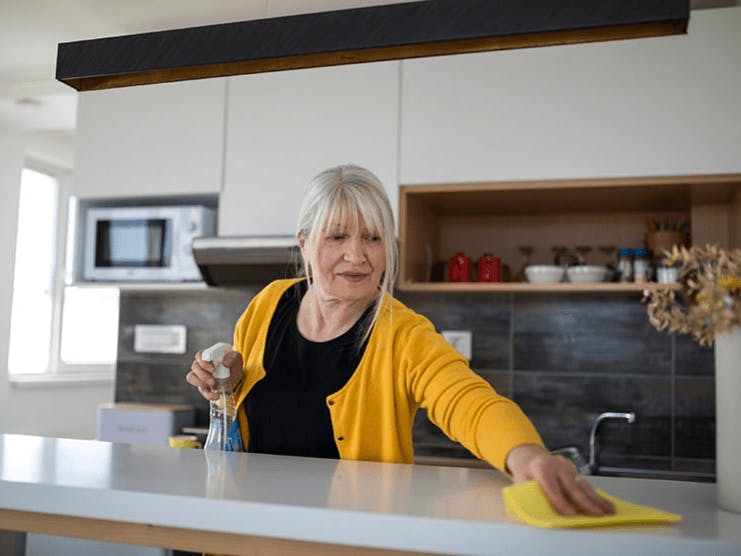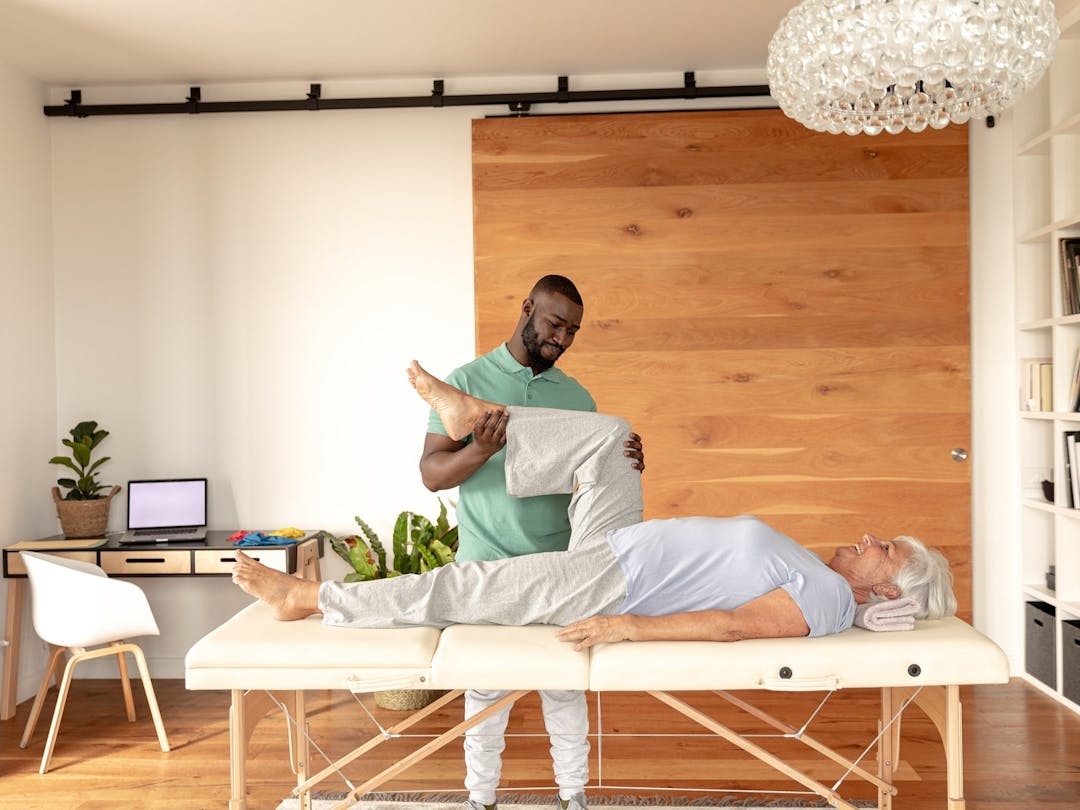
Everyone knows good hygiene is the first line of defense against bacteria and viruses, but it’s possible to take it too far. Here’s how to find the right balance.
No one wants to get sick. That’s why we take steps to avoid germs and protect ourselves from infection. And these efforts are extra important as we get older.
“As we age, our body’s immune system weakens,” says Vivek Cherian, M.D., an internal medicine doctor with the University of Maryland Medical System in Baltimore. That’s one reason older, unvaccinated adults are more likely to face severe illness from COVID-19, according to the Centers for Disease Control and Prevention (CDC).
For children, exposure to germs can be a good thing. It teaches their immune systems to handle future attacks, Dr. Cherian says. But that's not true for older adults. So it’s smart to avoid pathogens that could make you sick. But at the same time, you should avoid being too consumed with cleanliness.
Trying to eliminate every microscopic organism can lead to a common type of obsessive-compulsive disorder (OCD), called contamination OCD. People with this condition have fears related to dirt, germs, and washing, according to the International OCD Foundation. They develop compulsive cleaning habits or rituals, which can interfere with daily life.
So how do you clean to the point of safety without overstepping toward unnecessary and possibly unhealthy behaviors? Since there’s no perfect, one-size-fits-all approach to cleaning, it’s helpful to remember that it’s impossible to avoid all germs all the time, says Dr. Cherian. They are, in fact, everywhere. And that’s not necessarily dangerous.
It’s also important to remember that cleanliness is not all or nothing. You do need to wash up sometimes, but you don’t need to constantly scrub your hands or clean your doorknobs to reduce your chances of getting sick, Dr. Cherian says.
If you’re worried you’re taking cleaning and hygiene too far or may have symptoms of OCD, see your healthcare provider. But even if you’re not experiencing contamination OCD, you can still go overboard, especially in the age of COVID-19.
With that in mind, we decided to get to the bottom of three common cleaning questions to find out when enough is enough.
1. How often should you disinfect surfaces in your home?
Disinfecting things you touch often can help prevent illness. But disinfecting your home multiple times a day isn’t necessary unless you or someone in your home is sick, Dr. Cherian says.
To be sure, some viruses can spread from contact with surfaces. For example, a study published in the Journal of Hospital Infection shows that the flu virus can live on surfaces for up to two weeks. But the risk is lower for COVID-19, which is primarily passed through the air. While it is possible to be infected by touching contaminated surfaces, the risk is low, according to the CDC.
So, what’s the compromise between cleanliness and compulsion? Disinfect countertops and other high-touch areas only when they’re most likely to be contaminated. For example, you should disinfect them before and after people visit your home and when you or someone in your home is sick. The CDC also recommends disinfecting countertops after unloading groceries or other packages or deliveries. To disinfect, use a cleaner with a chemical, such as bleach, that kills germs on surfaces.
If you’re just doing routine cleaning to wipe away fingerprints or spilled food, then regular soap or a surface cleaner is sufficient. The CDC also recommends washing utensils, cutting boards, and countertops with hot, soapy water after each use — especially if you’re handling things like raw meat, seafood, or eggs.
2. How often should you wash your hands?
Washing your hands with soap and water is an easy and effective way to reduce the spread of germs, according to the CDC.
But excessive handwashing can damage your skin’s protective barrier, which can cause redness and irritation. A study published in the Journal of Wound Ostomy & Continence Nursingshowed that damage to the skin gets worse the more often you wash your hands.
So again, limit your washing to the most important moments: After using the restroom, blowing your nose, coughing, or sneezing. You should also wash before eating or cooking, and the CDC recommends washing after handling things that may have been passed through many hands — think mail or groceries.
To wash, stick to plain soap and water and scrub your hands for at least 20 seconds. When soap and water aren’t available, use hand sanitizer that has at least 60% alcohol, Dr. Cherian says. Rub the sanitizer over all parts of your hands and fingers until your hands are dry (about 20 seconds).
3. What should you sanitize when you’re out in public?
While it may seem overboard to use disinfecting wipes on everything you touch when you’re out and about, this is one area where you may want to use extra precaution. The CDC recommends cleaning high-touch items to lower your chances of picking up a bug. Those include:
- Shopping carts
- Buttons at the ATM or drive-throughs
- Gas pump buttons and handles
Since the pandemic began, some companies have taken extra measures to disinfect high-touch surfaces. For example, Midwestern supermarket chain Hy-Vee, based in West Des Moines, Iowa, became the first grocery retailer to use an automated cleaning system to sanitize every shopping cart after every use.
If your local businesses don’t have similar options, you may want to travel with a small pack of wipes. But if you forget, don’t panic. Just avoid eating our touching your face until you’re able to wash your hands. And again, you can always use hand sanitizer. That’s a good thing to keep in your car, so you can always do a quick clean after shopping.
Additional Resources
Older unvaccinated adults are more likely to be hospitalized or die from COVID-19
External Website Link
International OCD Foundation
External Website Link
SARS-CoV-2 and Surface (Fomite) Transmission for Indoor Community Environments
External Website Link
Persistence of influenza on surfaces
External Website Link
When and how to wash your hands
External Website Link
The effect of washing and drying practices on skin barrier function
External Website Link
Hand Sanitizer Use Out and About
External Website Link
When and How to Wash Your Hands
External Website Link
How to Protect Yourself and Others
External Website Link
When You’ve Been Fully Vaccinated
External Website Link
Hy-Vee Becomes First Retail Grocery Chain to Implement Sterile Cart System
External Website Link


